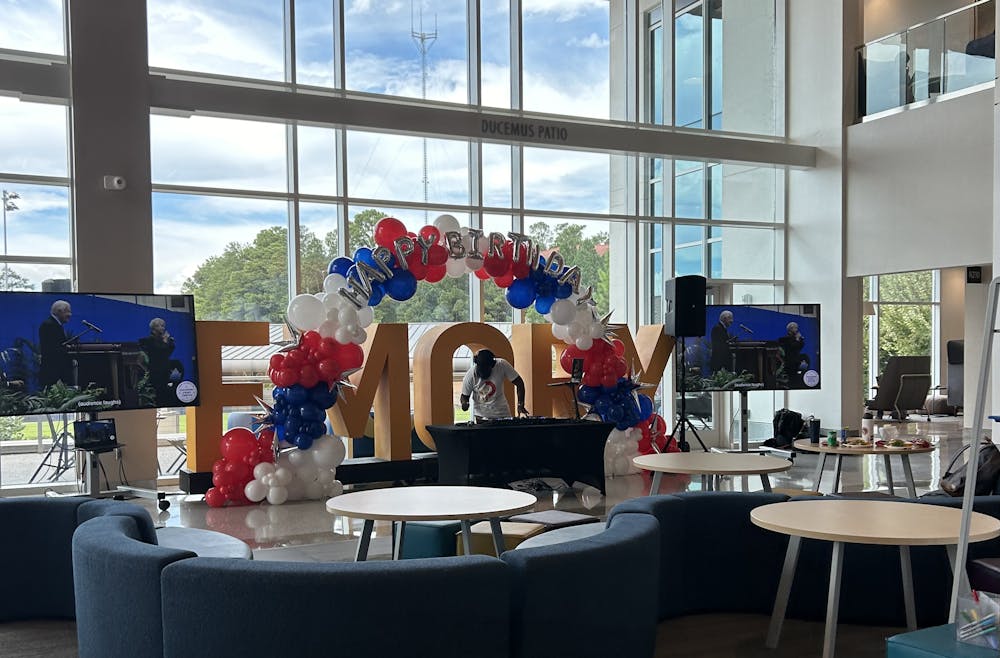The Emory University Student Center (ESC) hosted a celebration on Oct. 1 celebrating former U.S. President Jimmy Carter’s 100th birthday. The event focused on Carter’s legacy as president, his leadership of The Carter Center and his contributions to the state of Georgia. Students, faculty and staff attended the event, which also featured food, live music and tabling by various service and civic-oriented student organizations.
Student-Led Community Engagement Director Byron Jones said Carter’s legacy is worth celebrating because of his deep commitment to community service. He added that he hopes students will “continue to understand what [Carter] has not only brought to Emory but also to the Atlanta community.”
“Having a president from the Atlanta area — that’s history in itself,” Jones said.
Xavian Gordon (26C) explained that Carter’s legacy is one of service.
“Sometimes we lose our way with that, and I feel like it’s good to center ourselves and give back when we can,” Gordon said.
During the event, the ESC displayed dozens of pictures of Carter on Emory’s campus, along with various photos highlighting key moments during his time as president. Additionally, event organizers displayed a Carter Center video highlighting the former president’s legacy on numerous screens.
Hans Khoe (24PH), who attended the event, connected Carter’s legacy to his own graduate school experiences.
“Jimmy Carter’s legacy is just impactful for how we can remember what politics was all about in the first place, whether it’s through how we interact in any of our graduate fields, with law, with public health,” Khoe said. “It’s all about the community. It's all about giving back. We should feel honored and also encouraged to keep doing more.”
Another attendee, Saleem Ibraheem (26C), said Carter inspired him as a strong politician who fought for peace.
“It is so noteworthy,” Ibraheem said. “Even after being president of the United States, he was humble enough to come render his services and act as a professor here at Emory.”
Ibraheem added that others should follow in Carter’s footsteps as an advocate for peace.
“The culture as a whole is something we should continue,” Ibraheem said. “It’s a place for unity, to meet new people and honestly just unite as a culture, as a country, as a world.”

Sam Sandler (28C) is likely majoring in Political Science and Psychology. He is from Bethesda, Maryland and is a huge Washington Commanders fan. Besides writing for the Wheel, he enjoys spending time outside and with friends and family. You can most likely find him in Lullwater or at the Woodpec on campus.






